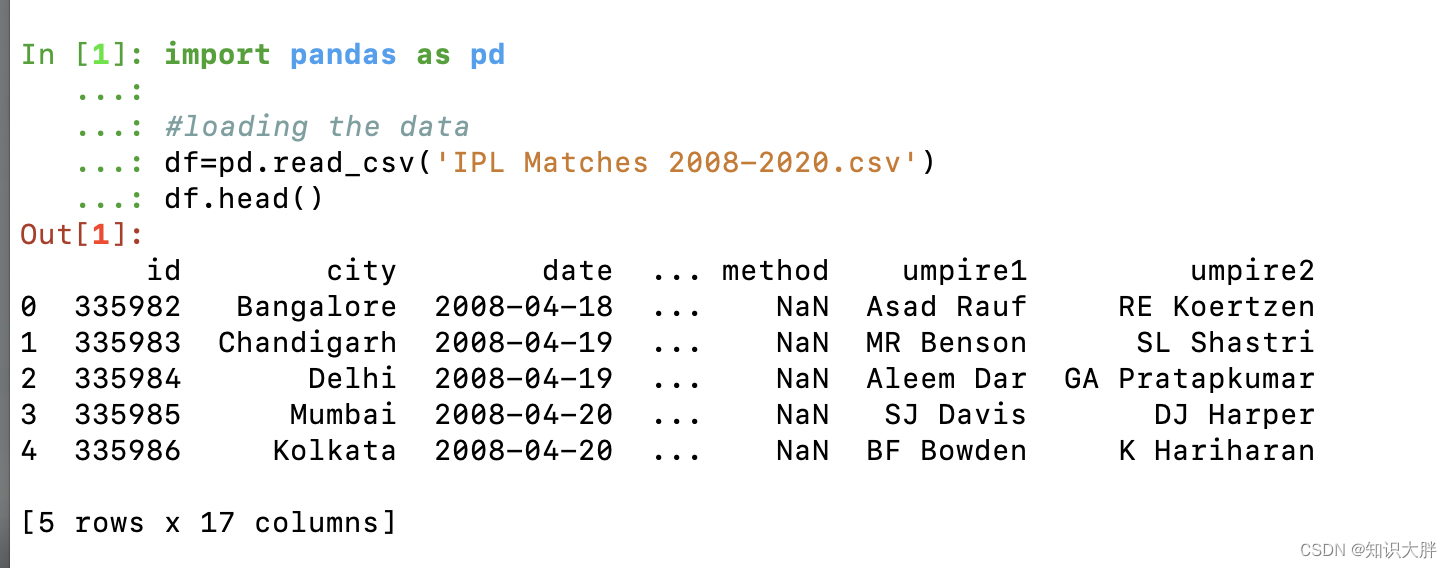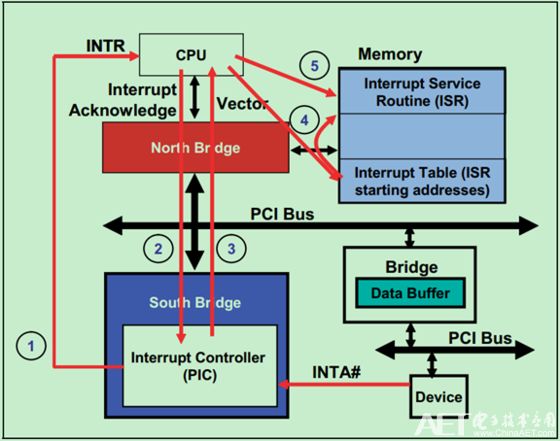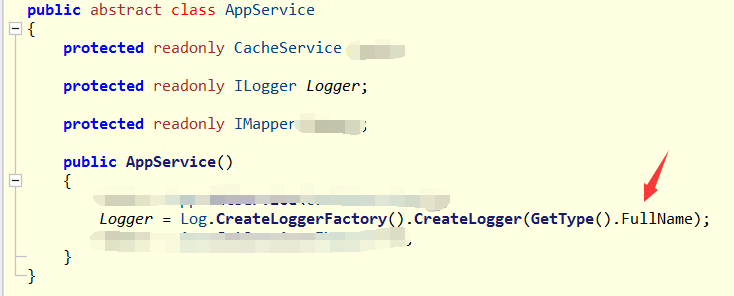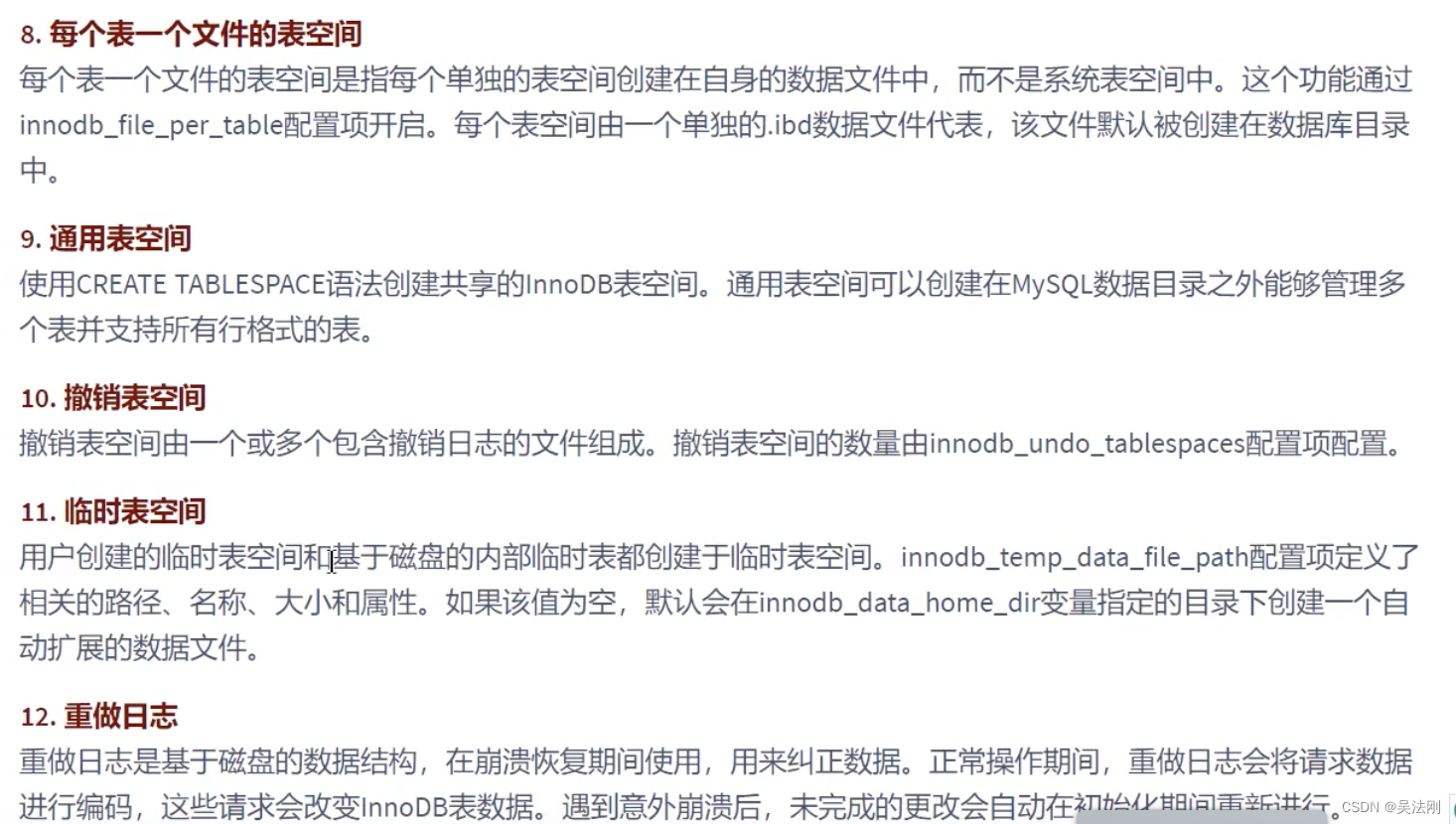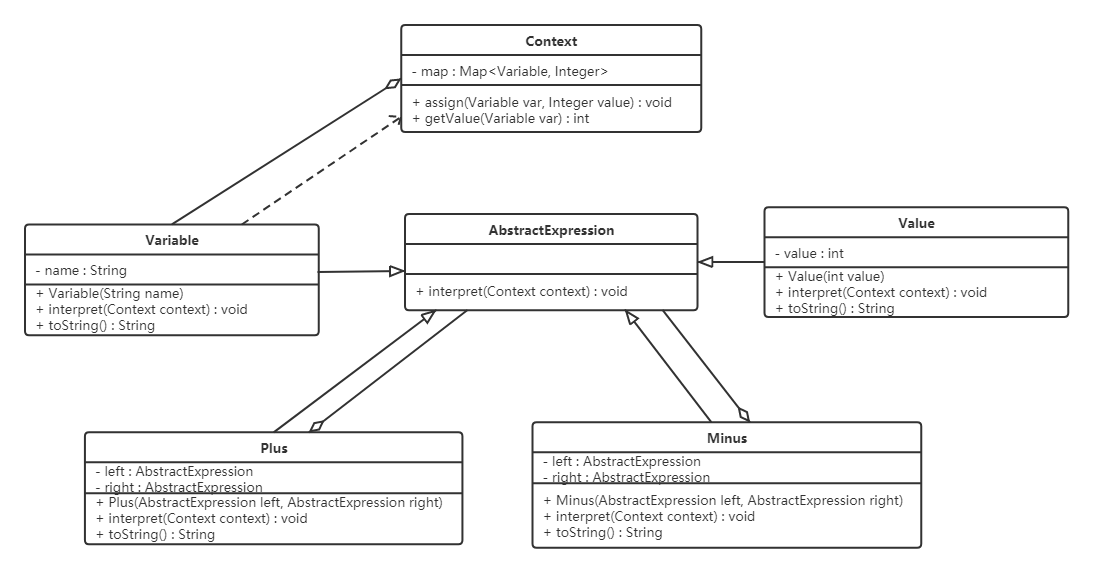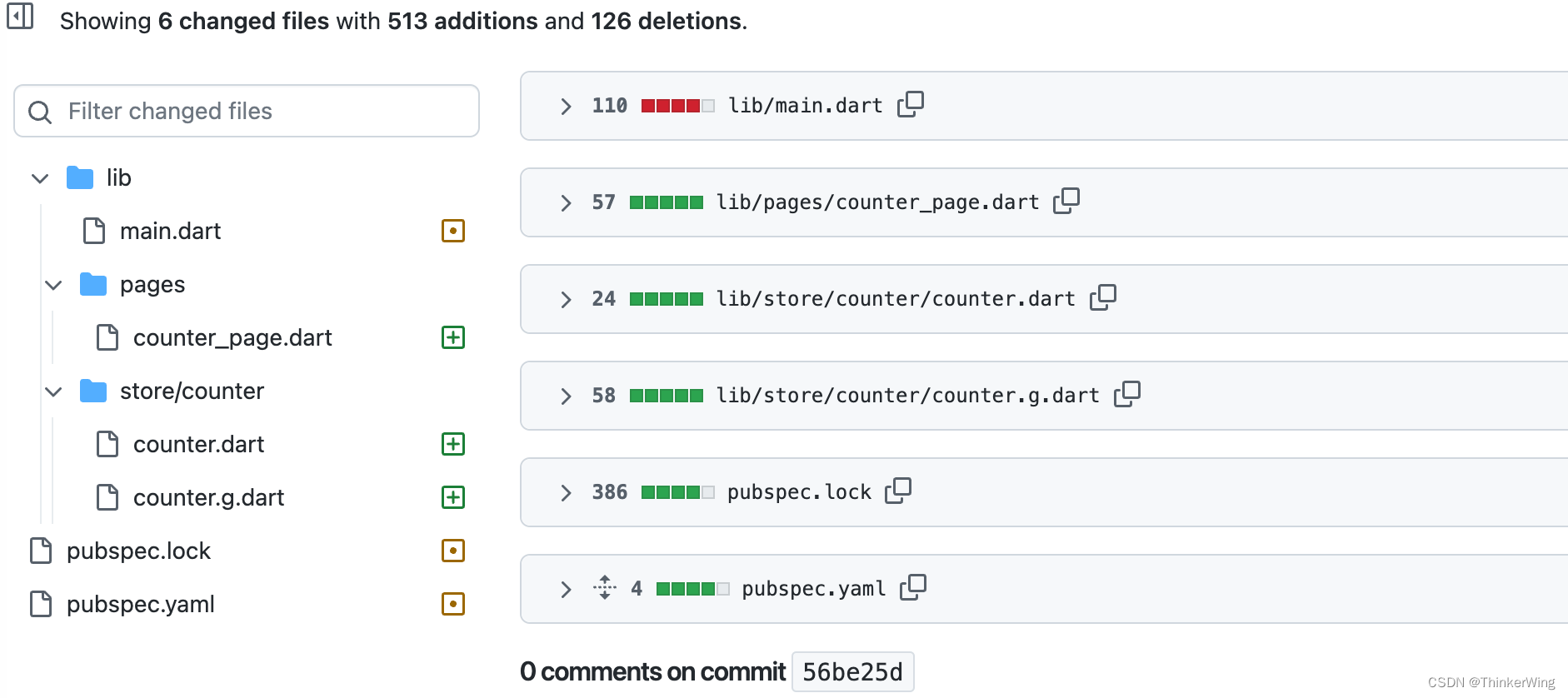目录
一、浅拷贝、深拷贝
二、传统版本写法的String类
三、现代版本写法的String类
四、String类的模拟实现
一、浅拷贝、深拷贝
构造
//构造函数
String(const char* str = "")
{
if (nullptr == str)
{
assert(false);
return;
}
_str = new char[strlen(str) + 1];
strcpy(_str, str);
}析构
//析构函数
~String()
{
if (_str)
{
delete[] _str;
_str = nullptr;
}
}代码展示:
#define _CRT_SECURE_NO_WARNINGS
#include<iostream>
using namespace std;
#include<string>
#include<assert.h>
//构造
//拷贝构造
//赋值运算符重载
//析构函数
class String
{
public:
//构造函数
String(const char* str = "")
{
if (nullptr == str)
{
assert(false);
return;
}
_str = new char[strlen(str) + 1];
strcpy(_str, str);
}
//析构函数
~String()
{
if (_str)
{
delete[] _str;
_str = nullptr;
}
}
private:
char* _str;
};
void TestString()
{
String s1("hello sunlang!");
String s2(s1);
cout << s1 << endl;
cout << s2 << endl;
}
int main()
{
TestString();
return 0;
}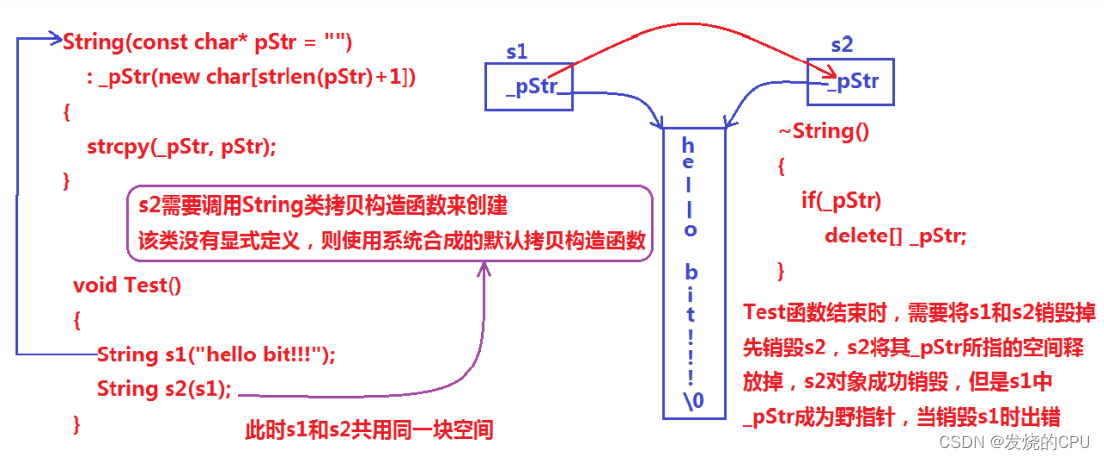
浅拷贝:编译器合成默认的拷贝构造,导致s1,s2共用同一块内存空间,在释放时同一块空间被释放多次而引起程序崩溃。
深拷贝:每个对象都有一份独立的资源,涉及到资源的管理,其拷贝构造函数、赋值运算符重载以及析构函数必须要显示给出。
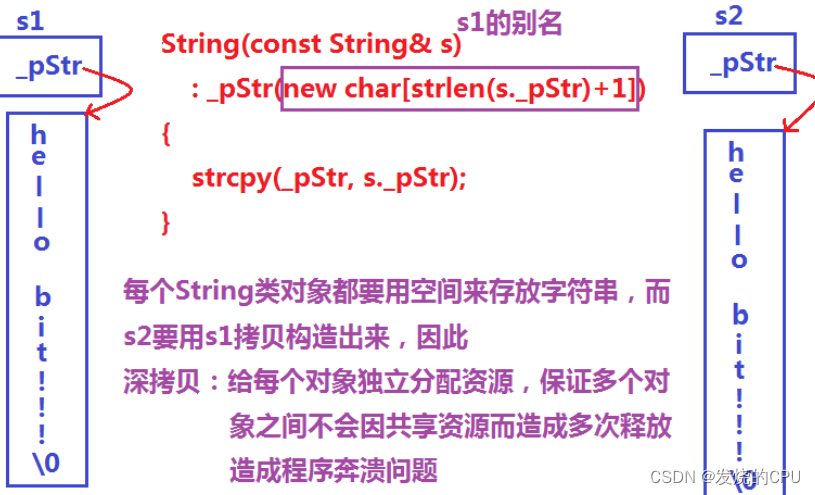
二、传统版本写法的String类
//传统版本写法的String类
class String
{
public:
//构造
String(const char* str = "")
{
if (nullptr == str)
{
assert(false);
return;
}
_str = new char[strlen(str) + 1];
strcpy(_str, str);
}
//拷贝构造
String(const String& s)
:_str(new char[strlen(s._str) + 1])
{
strcpy(_str, s._str);
}
//赋值重载
String& operator=(const String& s)
{
if (this != &s)
{
char* pStr = new char[strlen(s._str) + 1];
strcpy(pStr, s._str);
delete[] _str;
_str = pStr;
}
return *this;
}
//析构
~String()
{
if (_str)
{
delete[] _str;
_str = nullptr;
}
}
private:
char* _str;
};三、现代版本写法的String类
#define _CRT_SECURE_NO_WARNINGS
#include<iostream>
#include<string>
#include<assert.h>
using namespace std;
class String
{
public:
//构造
String(const char* str = "")
{
if (nullptr == str)
{
assert(false);
return;
}
_str = new char[strlen(str) + 1];
strcpy(_str, str);
}
//拷贝构造
String(const String& s)
:_str(nullptr)
{
String strTmp(s._str);
swap(_str, strTmp._str);
}
//赋值重载
String& operator=(String s)
{
swap(_str, s._str);
return *this;
}
~String()
{
if (_str)
{
delete[] _str;
_str = nullptr;
}
}
private:
char* _str;
};四、String类的模拟实现
#define _CRT_SECURE_NO_WARNINGS
#include<iostream>
using namespace std;
#include<assert.h>
namespace sunlang
{
class string
{
public:
typedef char* iterator;
public:
//构造
string(const char* str = "")
{
_size = strlen(str);
_capacity = _size;
_str = new char[_capacity + 1];
strcpy(_str, str);
}
//拷贝构造
string(const string& s)
:_str(nullptr)
, _size(0)
, _capacity(0)
{
string tmp(s._str);
this->swap(tmp);
}
//赋值重载
string& operator=(string s)
{
this->swap(s);
return *this;
}
//析构
~string()
{
if (_str)
{
delete[] _str;
_str = nullptr;
}
}
//iterator
iterator begin()
{
return _str;
}
iterator end()
{
return _str + _size;
}
//modify
void push_back(char c)
{
if (_size == _capacity)
{
reverse(_capacity * 2);
}
_str[_size++] = c;
_str[_size] = '\0';
}
string& operator+=(char c)
{
push_back(c);
return *this;
}
void clear()
{
_size = 0;
_str[_size] = '\0';
}
void swap(string& s)
{
std::swap(_str, s._str);
std::swap(_size, s._size);
std::swap(_capacity, s._capacity);
}
const char* c_str()const
{
return _str;
}
//capacity
size_t size()const
{
return _size;
}
size_t capacity()const
{
return _capacity;
}
bool empty()const
{
return 0 == _size;
}
void resize(size_t newSize, char c = '\0')
{
if (newSize > _size)
{
if (newSize > _capacity)
{
reserve(newSize);
}
memset(_str + _size, c, newSize - _size);
}
_size = newSize;
_str[newSize] = '\0';
}
void reverse(size_t newCapacity)
{
if (newCapacity > _capacity)
{
char* str = new char[newCapacity + 1];
strcpy(str, _str);
delete[]_str;
_str = str;
_capacity = newCapacity;
}
}
//access
char& operator[](size_t index)
{
assert(index < _size);
return _str[index];
}
const char& operator[](size_t index)const
{
assert(index < _size);
return _str[index];
}
};
}